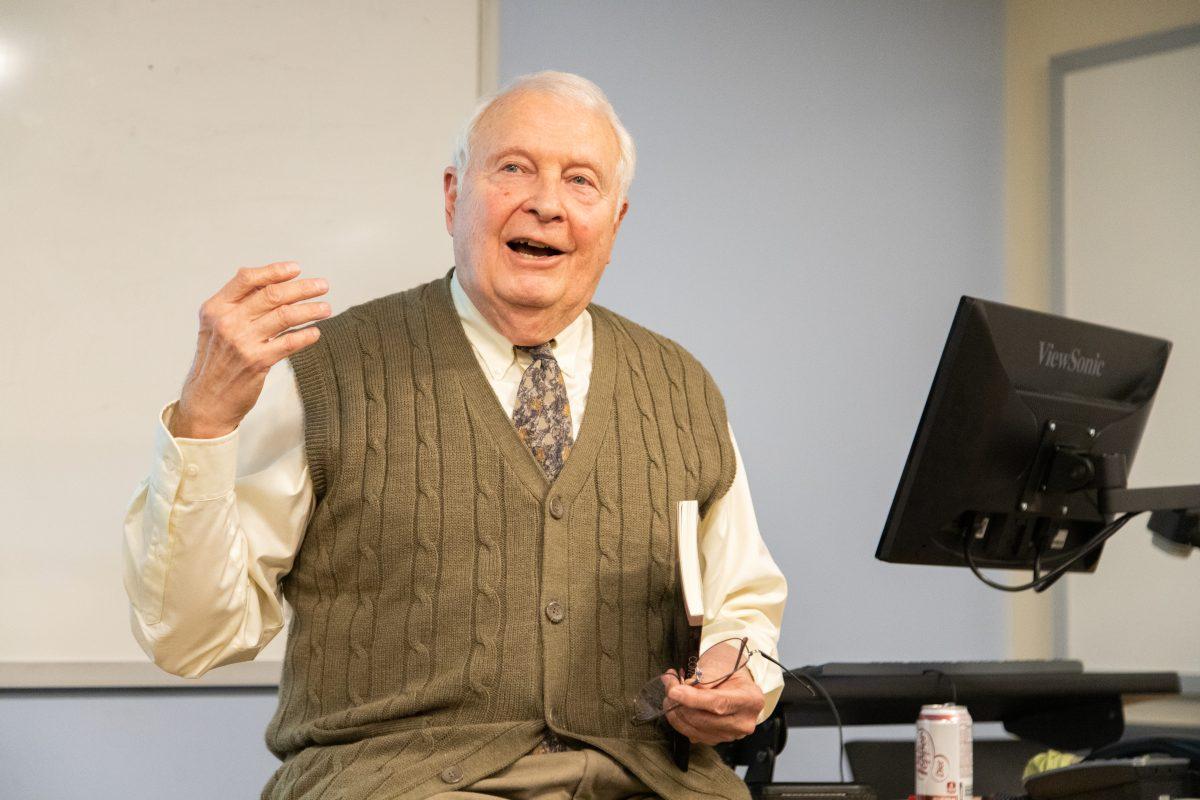Talking about sensitive topics
Terrance Furin, Ph.D, professor of educational leadership, challenged teachers and students at a March 26 discussion of his book about current injustices in the U.S. school system.
“It’s something that we cannot ignore and we should not ignore,” Furin said. “I think the classroom is the place to have those conversations that open us to explain our history and our values relative to that.”
One of the topics covered in the event included the ways an educator can bridge the gap between theory and practice, often when speaking about race in the classroom.
Furin’s book stemmed from an incident six years ago at a Coatesville, Pennsylvania high school where the district’s then superintendent and athletics director were involved in a racial text scandal. As a school superintendent himself for 22 years, Furin was angered by the administrators’ actions.
“I always really thought that was a position that required a lot of dignity and empathy and a lot of really caring about students,” said Furin. “When I read those [texts], it was obvious they weren’t.”
In his book, Furin detailed the typical hierarchy of many school districts in the U.S. and how students are usually at the bottom with no input on how their education is created.
“They totally forget the student is there,” Furin said. “If a school district does anything, it should stand up for the rights of its students, especially its minority students.”
Currently, Furin is the coordinator of the International Education Program at St. Joe’s and works with the Interdisciplinary Doctor of Education Program for Educational Leaders (IDEPEL) on campus.
Encarnación Rodriguez, Ph.D., chair of the educational leadership department, works with Furin and explained why an event like Furin’s is important.
“We are trying to create those spaces to have dialogues with our students,” Rodriguez said. “We don’t have the spaces where we can actually engage in those conversations with our students.”
Naomi Pereira-Lane, who attended Furin’s event and is also a student in the IDEPEL, said she feels these conversations need to happen.
“[Racial] conversations are harder conversations, and no one wants to tackle them,” Pereira-Lane said. “Ironically, we are able to speak openly and freely in many of Dr. Furin’s classes. “It was a hard topic, but it was one that had to be shared.
Josephine Tingba, who attended the event and is also in IDEPEL, said it was nice to hear someone talking about topics considered to be sensitive in the classroom.
“As someone who belongs to the minority society, it was nice to see someone talking about it,” Tingba said. “Sometimes it’s difficult talking about it, but the best way to talk about it is get the common ground and get comfortable before you get into it.”
Furin said that discussions of race in a classroom setting is something that can- not and should not be ignored.
“The classroom is the place to have those conversations that open us to explain our history and our values relative to that,” Furin said.














































